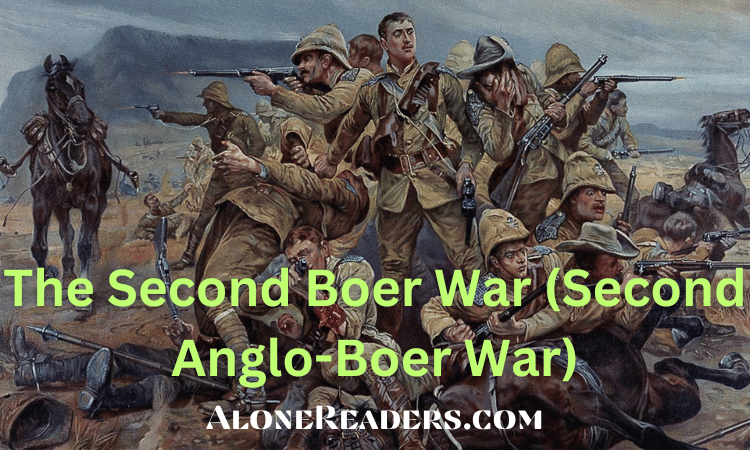
The Second Boer War, also known as the South African War, took place from October 11, 1899, to May 31, 1902, between the British Empire and two Boer states, the South African Republic (Transvaal) and the Orange Free State. Here are some key details about the war:
Boer republics' independence: The Boers, descendants of Dutch settlers, established independent republics in the region (Transvaal and Orange Free State) after the Great Trek in the 1830s and 1840s. They were rich in gold and diamond resources, attracting British interest.
British expansion and imperialism: The discovery of gold in the Boer republics intensified the imperialist ambitions of the British Empire, leading to tension between the Boers and the British, who sought to incorporate these territories into their dominion.
Jameson Raid: In 1895, Cecil Rhodes, a British businessman and politician, supported an unsuccessful raid into the Transvaal by Dr. Leander Starr Jameson, a British colonial statesman. The raid sought to provoke an uprising against the Boer government but failed and strained relations between the British and the Boers.
Ultimatum and declaration of war: Tensions escalated between the British and the Boers, eventually leading to the Boers issuing an ultimatum to the British government in September 1899, demanding the withdrawal of troops. The British did not comply, and the war began.
Guerrilla tactics: The Boers, equipped with modern rifles, employed guerrilla warfare tactics against the larger British forces. They used their knowledge of the terrain and mobility to launch surprise attacks, ambushes, and hit-and-run tactics.
British concentration camps: The British, faced with difficulties in defeating the Boers, adopted a "scorched earth" policy, burning Boer farms and confining Boer civilians in concentration camps. These camps, rife with disease and poor conditions, resulted in the deaths of thousands of Boer women and children.
British victory: The war resulted in a British victory, with the Boer republics being annexed by the British Empire.
Treaty of Vereeniging: The conflict ended with the signing of the Treaty of Vereeniging on May 31, 1902. The treaty recognized British sovereignty over the former Boer republics and outlined terms for their eventual self-government.
Union of South Africa: In 1910, the Union of South Africa was created, which unified the former Boer republics with the Cape Colony and Natal Colony under British rule.
Impact on British Empire: The war revealed deficiencies in the British military and raised questions about their imperial policies, leading to reforms.
Boer resentment: The war created a deep sense of resentment among the Boer population, which would influence South African politics and contribute to future conflicts.
Racial tensions: The war intensified racial tensions in South Africa, setting the stage for the institutionalization of racial segregation policies known as apartheid in the 20th century.
The Second Boer War had significant historical, political, and social implications for both South Africa and the British Empire, shaping the course of events in the region for years to come.